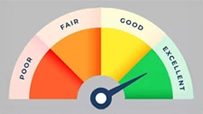Co-Applicant in Home Loan: Benefits & Rules You Should Know
September 01, 2025

Buying a home is often a family decision, and financially, it can be a big one. To make it easier, many people apply for a joint home loan by adding a co-applicant. A co-applicant in a home loan in many cases, is a strategic move.
Whether you're applying for a home loan with your spouse, parent, or earning child, adding a co-applicant can significantly improve your chances of loan approval. It can help enhance loan eligibility, divide repayment responsibility, and even save more on taxes.
In this blog, we’ll break down:
Understanding this role can help you make more confident decisions when applying for a joint loan.
Who Can Be a Co-Applicant in a Home Loan?
According to most Indian banks and housing finance companies, only close blood relatives or immediate family members are allowed to become co-applicants.
Commonly Accepted Co-Applicants
Not Accepted as Co-Applicants
Important distinction: A co-applicant is liable for the home loan, whether or not they own the property. For maximum tax and financial benefits, banks often recommend the co-applicant should also be a co-owner of the home.
Is It Mandatory to Have a Co-Applicant in a Home Loan?
No, having a co-applicant is not legally required. You can apply as a sole applicant if your income and credit profile meet the bank's eligibility criteria. However, banks may require or strongly recommend a co-applicant in the following situations:
When It’s Required or Beneficial
In such cases, adding a co-applicant is often the only way to qualify for the desired loan.
Benefits of Having a Co-Applicant in Home Loan
Adding a co-applicant to your home loan isn’t just about boosting your eligibility — it can unlock a series of financial, procedural, and even long-term tax advantages.
When two applicants apply together, their combined income is considered. This allows you to qualify for a larger loan amount, especially useful if you’re aiming for a bigger property or a better location.
Having a co-applicant allows you to split the repayment responsibility, reducing the monthly financial strain on a single person. This is especially helpful for young couples or single-income families.
Banks may offer lower interest rates when a co-applicant is added, especially if they have a high credit score or if the co-applicant is a woman (some banks offer preferential rates for women co-borrowers).
If one applicant has a borderline credit score, a financially stronger co-applicant can increase the overall creditworthiness, making approval more likely.
Tax Benefits for Co-Applicant in Home Loan
When both applicants are co-owners of the property and co-borrowers of the loan, they can individually claim tax benefits, significantly reducing the overall tax burden of the household.
Tax Deductions Available:
Example:
If both husband and wife are co-owners and co-borrowers, they can each claim ₹3.5 lakh (if eligible), resulting in a combined deduction of ₹7 lakh per year.
Note: To avail tax benefits, ownership share must be clearly defined, and actual contribution to EMI should be provable.
Financial & Legal Responsibilities
Being a co-applicant in home loan also comes with equal legal and financial responsibility. Both the primary and co-applicant are jointly liable to repay the loan, and their names appear on the loan agreement.
Key Legal Points
It’s important that both applicants fully understand the shared responsibility before proceeding.
Documents Required for Co-Applicants
To process a joint home loan, both the primary applicant and the co-applicant need to submit individual and combined documentation. Banks evaluate each applicant's profile before approving the loan.
Basic Documents Required (For Both Applicants)
Tip: If both applicants are salaried, submitting a joint salary certificate or a combined EMI contribution letter may speed up approval.
Disclaimer: The above section is for illustration purpose only. To know the exact list of documents required, please contact Ujjivan Small Finance Bank via email or calling the toll-free number or visit any of Ujjivan’s branches.
Common Mistakes to Avoid as a Co-Applicant in Home Loan
While adding a co-applicant can be advantageous, there are certain pitfalls that can undermine your loan process or reduce your benefits if not handled carefully.
1. Co-Applicant Isn’t a Co-Owner
For full tax benefits under Sections 80C and 24(b), the co-applicant must also be a registered co-owner of the property.
2. EMI Not Shared Through Bank Transfers
If the co-applicant isn’t actually paying part of the EMI or cannot prove it via banking records, they may not qualify for tax deductions.
3. Assuming One Applicant Is Responsible
Even if one person pays the entire EMI, both are legally liable. Banks can pursue either party in case of default.
4. Incorrect Income Declaration
Misrepresenting income or inflating eligibility by adding a co-applicant without stable earnings can backfire during verification.
Final Thoughts
Adding a co-applicant in home loan applications can be a decision that can impact your loan eligibility, EMI burden, legal responsibility, and tax planning for years. With proper planning, a co-applicant can make your home loan journey more affordable.
Buying a house has never been this easy! Avail Ujjivan SFB’s wide range of affordable home loan products and enjoy a hassle-free loan journey. From house purchase loan to plot loans and home improvement loans, we have it all! Alternatively, you can browse through Ujjivan SFB product suite - our wide range of financial products are designed to make your financial life better.
Disclaimer:
The contents herein are only for informational purposes and generic in nature. The content does not amount to an offer, invitation or solicitation of any kind to buy or sell, and are not intended to create any legal rights or obligations. This information is subject to updation, completion, amendment and verification without notice. The contents herein are also subject to other product-specific terms and conditions, as well as any applicable third-party terms and conditions, for which Ujjivan Small Finance Bank assumes no responsibility or liability.
Nothing contained herein is intended to constitute financial, investment, legal, tax, or any other professional advice or opinion. Please obtain professional advice before making investment or any other decisions. Any investment decisions that may be made by the you shall be at your own sole discretion, independent analysis and evaluation of the risks involved. The use of any information set out in this document is entirely at the user’s own risk. Ujjivan Small Finance Bank Limited makes no representation or warranty, express or implied, as to the accuracy and completeness for any information herein. The Bank disclaims any and all liability for any loss or damage (direct, indirect, consequential, or otherwise) incurred by you due to use of or due to investment, product application decisions made by you on the basis of the contents herein. While the information is prepared in good faith from sources deemed reliable (including public sources), the Bank disclaims any liability with respect to accuracy of information or any error or omission or any loss or damage incurred by anyone in reliance on the contents herein, in any manner whatsoever.
To know more about Ujjivan Small Finance Bank Products Visit:"https://www.ujjivansfb.in"
All intellectual property rights, including copyrights, trademarks, and other proprietary rights, pertaining to the content and materials displayed herein, belong
to Ujjivan Small Finance Bank Limited or its licensors. Unauthorised use or misuse of any intellectual property, or other content displayed herein is strictly prohibited and the same is not intended for distribution to, or use by, any person in any jurisdiction where such distribution or use would (by reason of that person’s nationality, residence or otherwise) be contrary to law or registration or would subject Ujjivan Small Finance Bank Limited or its affiliates to any licensing or registration requirements.
FAQs
1. Is it mandatory to have a co-applicant in a home loan?
No. You can apply individually, but a co-applicant may be required for higher loan amounts or if your income is insufficient.
2. Who can be a co-applicant in home loan in India?
Generally, immediate family members — spouse, parents, earning children, or siblings (if co-owners) — are allowed. Friends or unmarried partners are not typically eligible.
3. Can the co-applicant be a non-earning member?
Yes, but only if they are a co-owner of the property. However, they won’t help improve loan eligibility and won’t be able to claim tax benefits unless they contribute to EMI payments.
4. What happens if the co-applicant stops contributing to EMIs?
The primary applicant becomes solely responsible for the full EMI. Both applicants' credit scores are affected in case of default.
5. Does a co-applicant automatically become a co-owner of the property?
No. Ownership is determined by the sale deed. A co-applicant must also be registered as a co-owner to have property rights and claim tax benefits.
Latest Blogs

Credit Score Not Improving? 5 Mistakes You Might Be Making
August 13, 2025
For most of us, a credit score feels like a silent judge sitting in the background of our financial lives.

Banking Jargon Decoded: 15 Key Terms You Should Know
May 13, 2025
Banking feels simple on the surface; deposit money, withdraw when needed, pay bills, or transfer funds.

The ₹10 Lakh Rule for Cash Deposit Explained
August 13, 2025
Every day, millions of Indians walk into their banks to deposit cash, sometimes a few thousand rupees, sometimes several lakhs.

Missed Income or Errors? Here’s How ITR-U Can Save You from Penalties
August 13, 2025
Less than three weeks remain before the September 15 deadline to update income tax returns.

This Current Account is Designed to Empower Your Business
June 16, 2025
In the fast-paced world of business, having the right bank account can be a game-changer.





